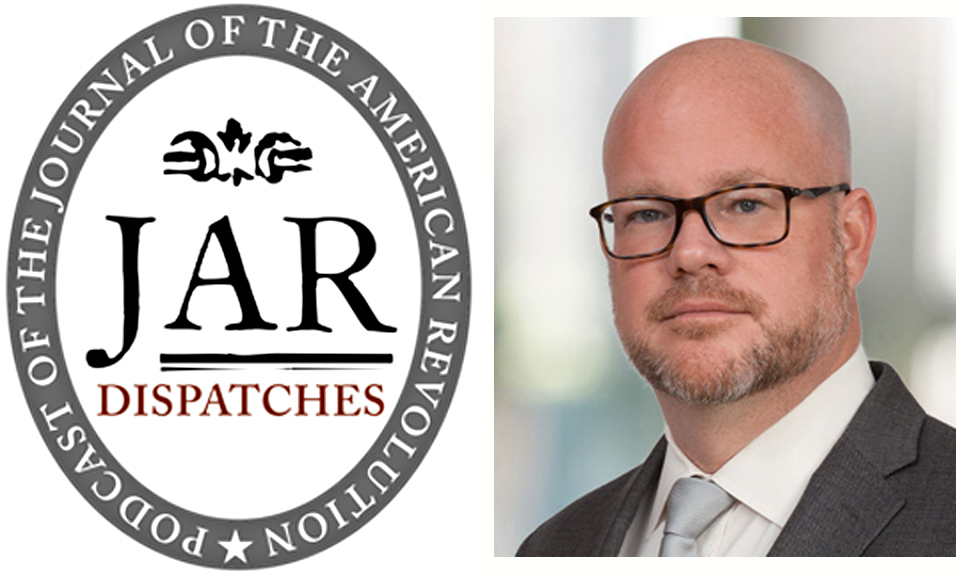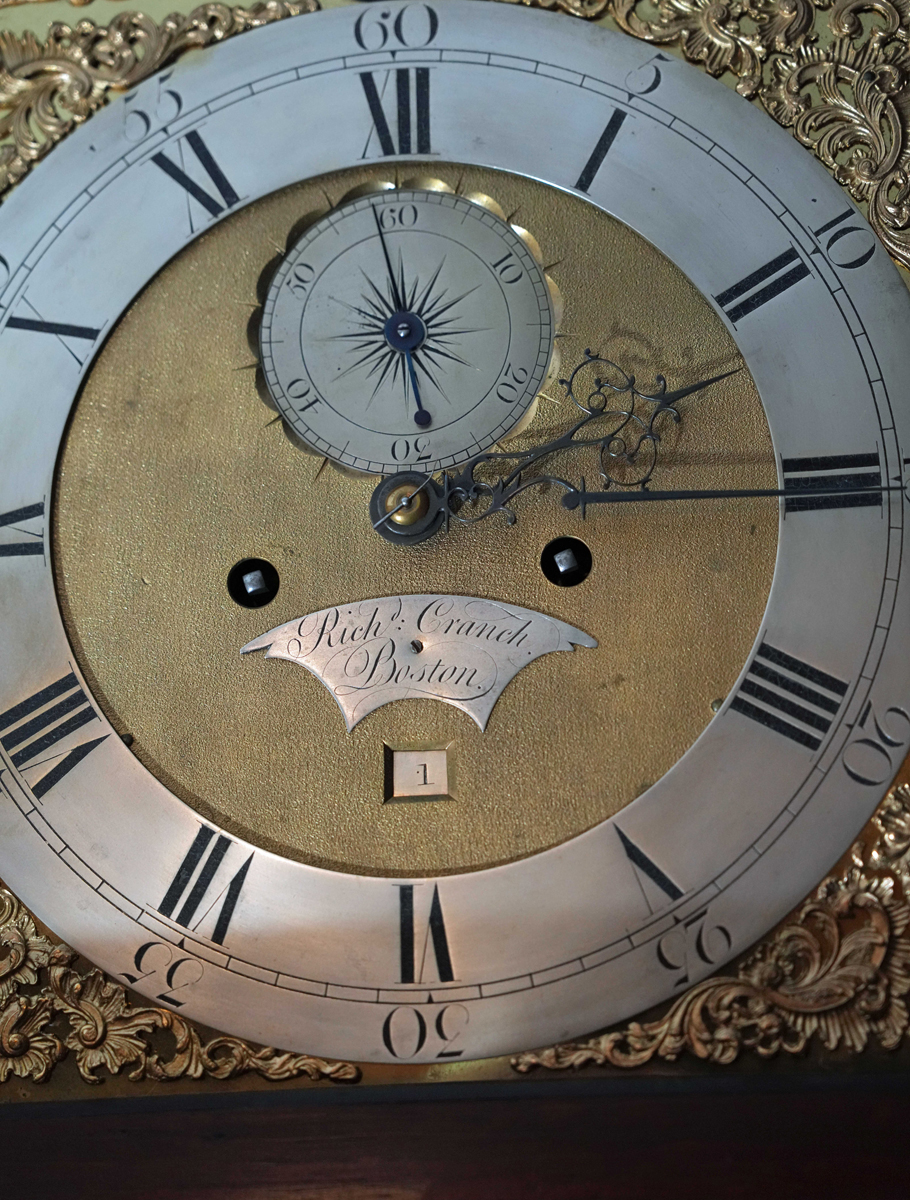A newly appointed colonel in the Essex County militia, Timothy Pickering led some 700 men of the Salem and Essex militia toward Boston, Massachusetts, to intercept the British as they retreated from Lexington on April 19, 1775. Pickering had his chance late that day to attack the British troops near Medford, Massachusetts, but, with the advice of General Heath, chose not to do so. Their mission aborted, Pickering and his men encamped that night in Medford. The next morning the militia returned to Salem, but Pickering stayed on long enough to take part in a war council. The Harlan Crow Library in Dallas, Texas, recently acquired the remarkable letter that Pickering wrote on April 21, in which he summed up the situation:
Salem Thursday Evening
Sir,
I was this day at Cambridge with the field officers of the regiments who were there assembled; General Ward of Shrewsbury, & General Heath were also present. I told them the seaports were so greatly exposed it appeared to me & others not expedient that any of the militia should leave them, & therefore, after consulting with the chief officers present I had directed and advised the Salem, Beverly, and Manchester militia to return. This was rather contrary to the previous desire of the Council of War, (composed of the General & field officers above mentioned;) but afterwards it appeared that they also judged it expedient, by directing the Ipswich companies to return: it was said a ship or two of war had sailed for Salem. Chelsea, Medford & Malden companies were also directed by the council to stay at home, because they are so much exposed to an attack by sea.
Ten minutes before one o’clock I left Cambridge, & this was then the posture of affairs: The regulars [British troops] were entrenching on the first hill beyond Charlestown neck; also on a point of ground (as well as I could learn) in Cambridge river, just as it opens to the Bay. For what purposes I cannot tell, but conjecture to prevent the provincials entering Boston by the way of Charlestown, or by boats going down Cambridge river. The provincials, perhaps three or four thousand men, were scattered about Cambridge common too much at random. Guards however had been sent to watch the regulars both at Charlestown & on Cambridge neck. The two generals were giving orders for the immediate security of the provincials; and seeing I was sent for to assist in the council, I ventured to declare my opinion “That we ought to act only on the defensive; but some thought that now was the time to strike, & that now the day might be our own, & end the dispute. I could not think so: for besides the scanty portion of ammunition we at present could come at, our men were not sufficiently prepared for action; they were not disciplined even for an irregular engagement; few, very few, have had experience; & the officers in general have neither instructed themselves nor men how to act: The confusions of yesterday, testified by every officer I could talk with, fully justify these assertions. In general, I am told, every man did that which was right in his own eyes; & firing at enormous distances in scattered irregular parties, threw away ten thousand shot to kill about seventy men, for so many a regular officer has said they left; among whom are eight or ten prisoners. The number of men we lost is not yet ascertained; but tis supposed not so many as the regulars. Another & what appeared to me an important reason for acting only on the defensive was this. The attack is universally said by our people to have been begun by the King’s troops: This may serve to justify a return of fire from us; and tho by pursuing them we seemed to act offensively, yet that was a natural consequence of the first attack, & might be excused: but to attack the troops, while they remained, as now, quiet in the trenches, would be deemed a much more atrocious act, & fatally prevent an accommodation, which notwithstanding yesterday’s skirmish, did not appear wholly impracticable. What will be finally determined upon I will not attempt to conjecture. Heath is warm; so is Dr. Joseph Warren (who was present in council;) General Ward I think is firm, but cool & judicious; and every occurrence in the course of two hours respecting the ordering our provincials seemed to satisfy him of the truth of my assertion that we are not prepared for action. They have written a message to the Committee of Safety (of the Congress) to come towards Cambridge, that they might hold a consultation on the state of affairs, & to determine on what was left to be done. I took leave of General Ward with praying God to direct them to moderate measures.
I have this moment heard (& the report seems to be authentic) that the troops have withdrawn from Charlestown to Boston; & that the ferry (as well as the neck) is now open.
I with great pleasure tell you, that from every account I received, it appeared our men conducted with great humanity towards the regulars who were wounded & taken prisoners, notwithstanding some barbarities said to be committed by the regulars.
I have also just heard by a man from Boston, that Earl Percy is badly if not dangerously wounded.
The whole number of regulars in the engagement appears to be two thousand and many who were in the action think our men did not exceed two or three thousand.
Excuse the inaccuracy of this letter which I have written in a very great hurry.
Your most h’ble Servant
Tim. Pickering jr.
To Benj. Greenleaf, Esq.
In Newburyport

The recipient, Benjamin Greenleaf, was a prominent dry goods merchant from Newburyport, Massachusetts, who held the “greatest confidence” of the Massachusetts delegates to the Continental Congress. He served on the old colonial council from 1770 to 1774 and would be elected to the new reconstituted council by the house of representatives in July 1775.









4 Comments
This sounds so much more reserved than the “political” Pickering. I confess I don’t know much about his military career. Given his personality, he probably would have been a better fit for military leadership than politics. But also given his personality he probably would have gotten himself hanged for disobedience.
Looks like Pickering was getting his way here, and therefore not so prickly as he could be. Some of his writing on the pre-war militia was definitely as prickly as his later political apologia.
The summary of this missed opportunity given by Fischer in Paul Revere’s Ride states that Heath strongly denied having agreed with Pickering or ordering a halting of his advance. It also claims he had dallied in his march until urged forward by his subordinates. Regardless, it is very good to read his letter of justification for his actions.
In Jon Meacham’s Songs of America (p 15) , Meacham writes of Tory Peter Oliver, who witnessed the Battle of Lexington & Concord. Oliver says, “There was a remarkable Heroine, who stood at a house firing at the King’s Troops, there being men within who loaded guns for her to fire. She was desired to withdraw (by British troops) but she answered only by insults from her own mouth and by balls from the mouths of her muskets. This brought on her own death and the death of those who were within doors.” A woman who was a “crack shot” being handed guns from men and all killed by cannon fire, I presume. Do we know who this courageous woman was ? The first woman perhaps to die for her country ?